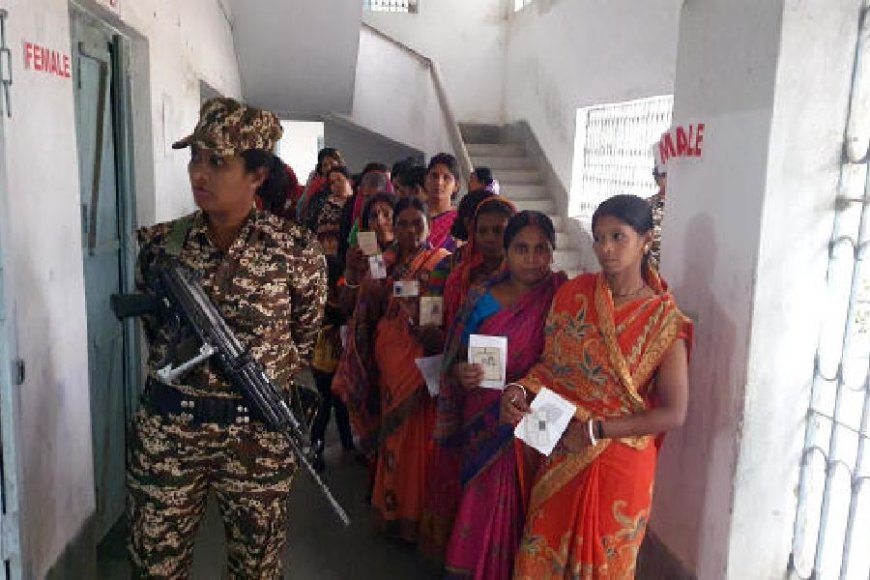Migrant Workers in Bengal Skip Voting Amidst Economic and Religious Commitments
Economic Constraints and Religious Commitments Deter Migrant Workers from Voting

Murshidabad, West Bengal - Manirul Islam, a 35-year-old migrant worker from Samserganj in Murshidabad, chose to stay at his workplace in Kerala during the third phase of the ongoing Lok Sabha polls on Tuesday, rather than embarking on a 2,500km long train journey to cast his vote.
Four seats in Malda and Murshidabad districts — Malda Uttar and Dakshin, Jangipur and Murshidabad — went to the polls on Tuesday. However, a significant number of migrant workers from these districts did not return home to vote.
“I went home last month on the occasion of Eid-Ul-Fitr (on April 11). Again, I have to go home in June for Eid-Ul-Adha (on June 17). That is why I thought of staying back and didn’t go home to vote,” said Manirul over the phone.
Ahead of the elections, migrant workers usually return home in groups to vote. In Malda and Murshidabad, there are around 10 lakh people who work in other states. However, this time, many like Manirul and Wasim Akram, a construction worker from Farakka of Murshidabad district who works in Mumbai, chose to skip the elections due to economic constraints and religious commitments.
Political parties, including the Trinamool Congress led by Chief Minister Mamata Banerjee, had repeatedly urged the migrant workers to return home and vote. “Those working in other states should come and vote. Or else, your name might be struck off the electoral roll in the pretext of the CAA (Citizenship Amendment Act) and the NRC,” Mamata had warned at public meetings in these districts.
Malda and Murshidabad have a minority population of around 50 per cent and 70 per cent, respectively, which makes the ruling dispensation of Bengal focus on this vote bank. However, the spectre of the CAA and the NRC, which Trinamool had presented during its campaign, didn’t seem to have the desired effect.
“In democracy, everybody should vote. Simultaneously, we can’t ignore the economic reality. It is indeed tough for a migrant worker, serving in a far-flung state, to visit his home thrice in three months,” said Mou Chatterjee, a teacher in political science based in Malda.
Political parties are yet to assess how many migrant workers turned up to vote. In Malda, a rough estimate made by parties indicated that barely one lakh workers, who serve in neighbouring states, voted on Tuesday.
Ashok Das, the vice-president of Trinamool’s Murshidabad district committee, admitted that fewer migrant workers voted this time. “It is true that most of them stayed back at their workplaces as they will come home next month. We got the reports at the last moment and thus didn’t have time to organise them and bring them here to vote,” said Das.
Subhadeep Sanyal, the Malda district INTTUC president, blamed the protracted poll season conceived by the Election Commission of India. “It is impractical to expect that a migrant worker, especially one who is from the minority community, would be able to come home thrice in three months because of religious events and elections. As far as we know, only a few of them have come to vote. It is because of the long election schedule drawn by the Election Commission that they couldn’t vote,” said Sanyal.























































